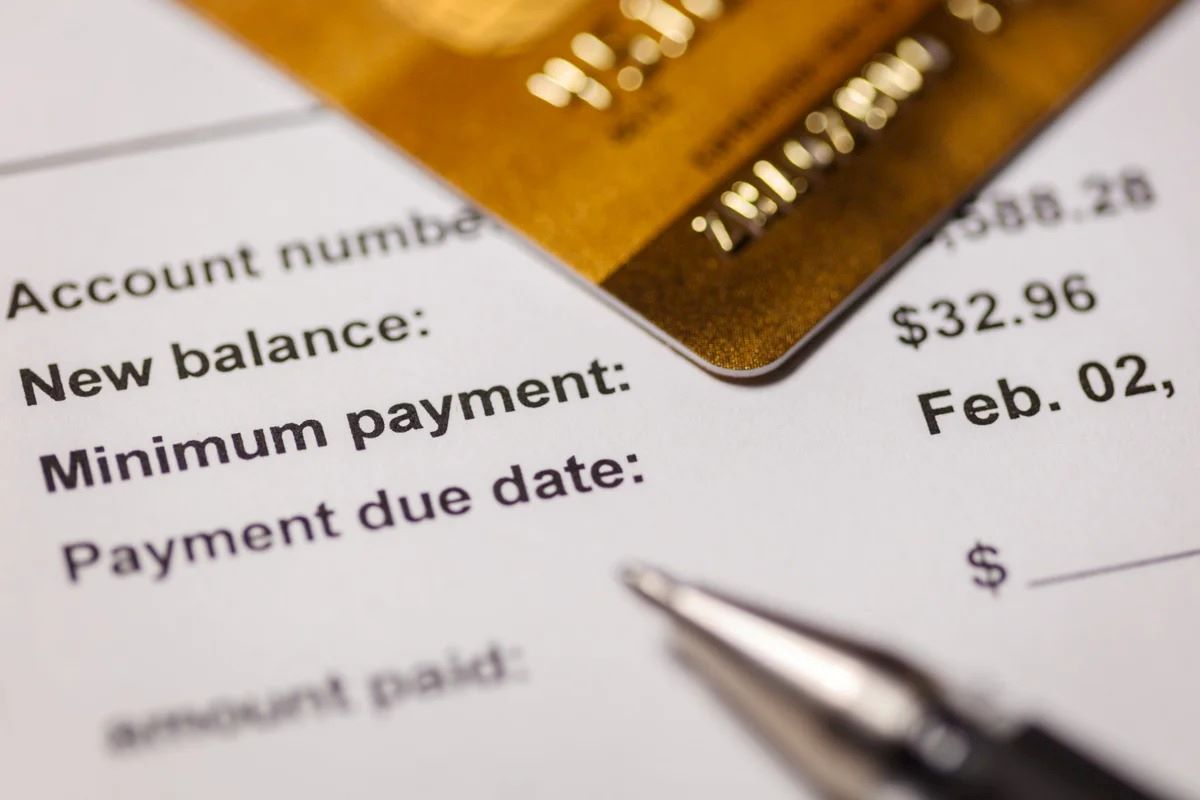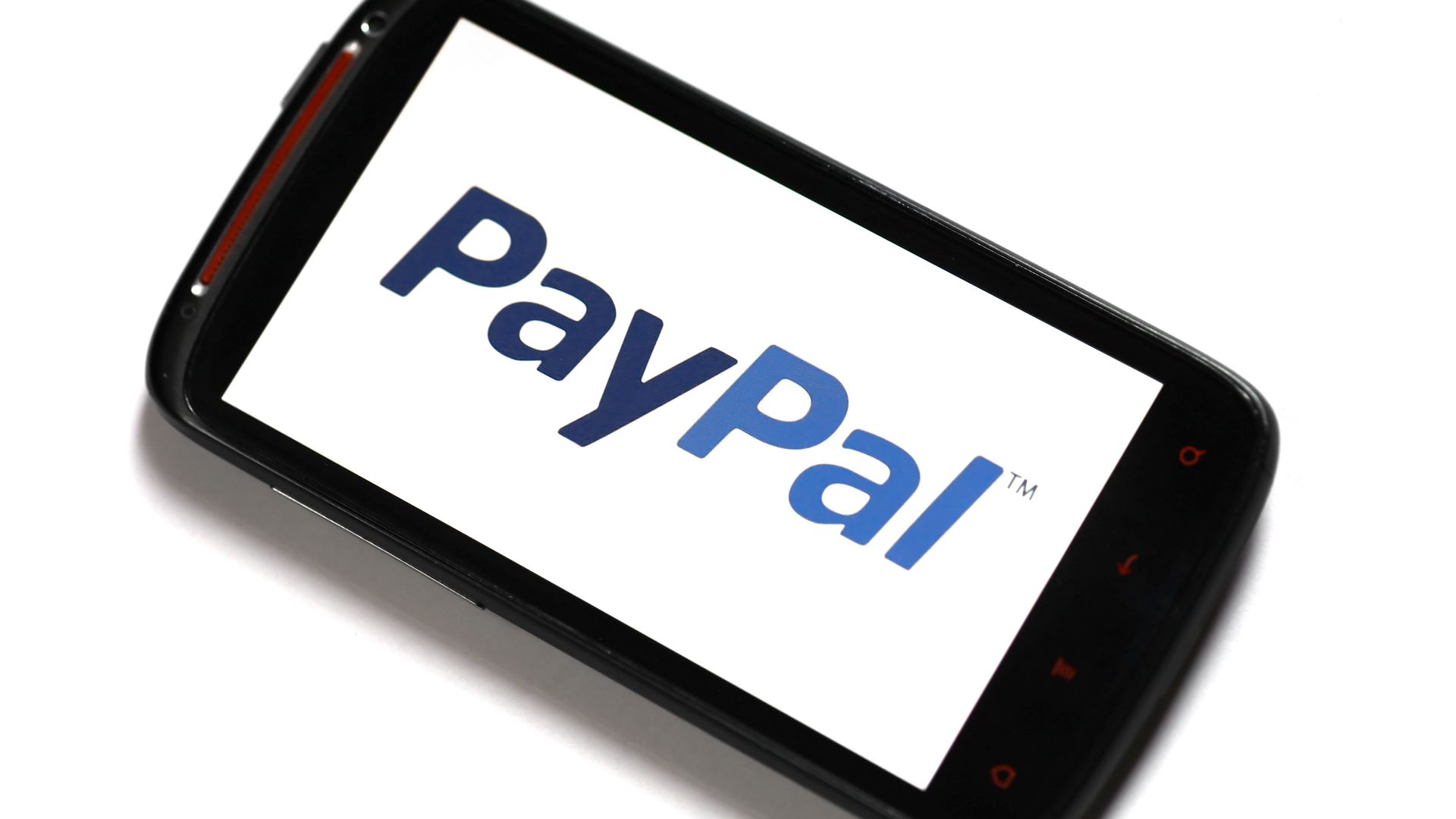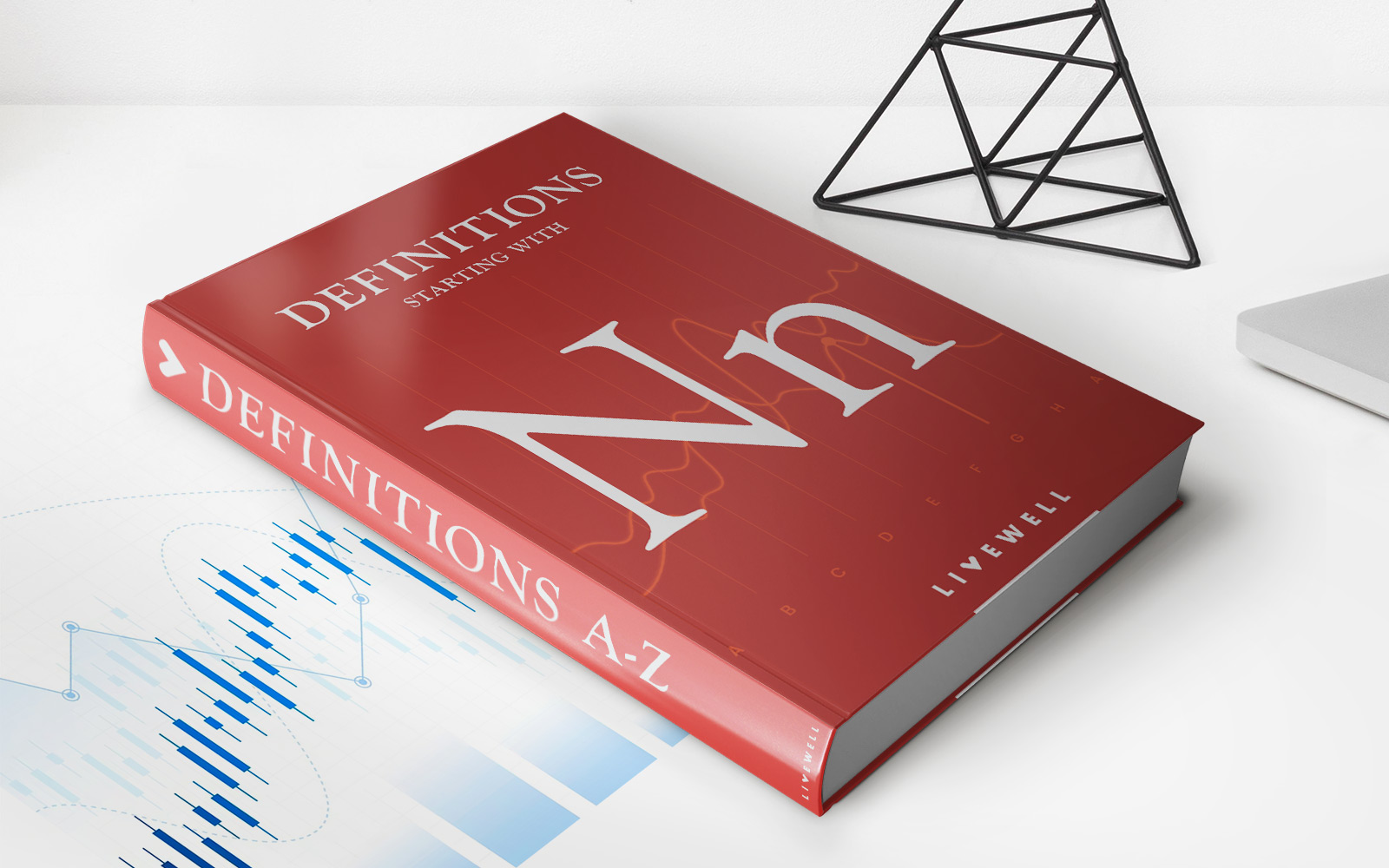Home>Finance>Why Is It Important To Make More Than The Minimum Payment On Your Credit Card Debt


Finance
Why Is It Important To Make More Than The Minimum Payment On Your Credit Card Debt
Published: February 26, 2024
Learn why making more than the minimum payment on your credit card debt is crucial for your financial well-being. Explore the benefits of paying off debt faster and improving your overall financial health.
(Many of the links in this article redirect to a specific reviewed product. Your purchase of these products through affiliate links helps to generate commission for LiveWell, at no extra cost. Learn more)
Table of Contents
**
Introduction
**
Credit card debt is a common financial burden for many individuals. It can accrue rapidly due to high-interest rates, leading to prolonged repayment periods and substantial overall costs. When faced with credit card debt, making only the minimum payment can seem like a convenient option. However, it's essential to understand the long-term implications of this approach. In this article, we will delve into the reasons why it's crucial to make more than the minimum payment on your credit card debt.
By exploring the concept of minimum payments, their associated costs, and the benefits of exceeding them, we aim to provide readers with a comprehensive understanding of this critical financial decision. Additionally, we will outline effective strategies for paying more than the minimum, empowering individuals to take control of their credit card debt and work towards financial freedom.
Credit card debt is not merely a financial issue; it can also impact mental and emotional well-being. The stress and anxiety associated with mounting debt can permeate various aspects of life, affecting relationships, work performance, and overall quality of life. Therefore, addressing credit card debt proactively is not only a prudent financial decision but also a crucial step towards achieving peace of mind and stability.
Throughout this article, we will emphasize the importance of informed financial management, highlighting the power of strategic debt repayment in shaping a secure and prosperous future. Whether you're currently managing credit card debt or aiming to fortify your financial knowledge, the insights shared here will serve as a valuable guide in navigating the complexities of debt repayment and wealth accumulation.
**
Understanding Minimum Payments
When you receive your credit card statement, you’ll notice a specified minimum payment amount. This figure is the lowest sum you can pay to keep your account in good standing. While it may seem like a manageable obligation, it’s imperative to comprehend how minimum payments are calculated and their implications.
Minimum payments typically constitute a small percentage of your total outstanding balance, often around 1-3%. They are designed to ensure that you fulfill your immediate repayment responsibilities while allowing the credit card company to continue earning interest on the remaining balance. As a result, making only the minimum payment extends the duration of your debt and significantly inflates the overall amount you’ll repay.
It’s essential to recognize that minimum payments primarily cover interest charges and a fraction of the principal balance. As a consequence, the principal amount – the actual debt you’ve accrued through purchases, cash advances, or balance transfers – decreases at a sluggish pace when you solely make minimum payments. This perpetuates a cycle of debt, as the interest continues to accumulate on the remaining balance, impeding your progress towards debt freedom.
Moreover, failing to meet the minimum payment can lead to late fees, penalty interest rates, and a negative impact on your credit score. Understanding the significance of minimum payments and their underlying mechanisms is pivotal in devising a proactive approach to managing credit card debt.
By comprehending the intricacies of minimum payments, individuals can make informed decisions regarding their repayment strategies, steering clear of the pitfalls associated with prolonged debt and financial strain.
**
The Cost of Minimum Payments
While the concept of minimum payments may offer temporary relief, it’s crucial to acknowledge the substantial long-term costs associated with this approach. By making only the minimum payment on your credit card debt, you inadvertently subject yourself to a cycle of prolonged repayment and exorbitant interest charges.
One of the most significant factors contributing to the high cost of minimum payments is the accruing interest. Credit card interest rates are notoriously steep, often ranging from 15% to 25% or more. When you solely make the minimum payment, a substantial portion of your contribution is allocated towards servicing these interest charges, with only a fraction chipping away at the principal balance.
Consequently, the remaining balance continues to accrue interest, perpetuating a cycle of indebtedness. Over time, this results in a significantly inflated total repayment amount, far surpassing the initial sum borrowed. The compounding effect of high-interest rates amplifies the financial burden, making it increasingly challenging to break free from the shackles of debt.
Furthermore, the prolonged duration of debt repayment due to minimum payments translates to an extended exposure to interest accumulation. This protracted timeline not only amplifies the overall cost but also restricts your financial flexibility and hampers your ability to allocate resources towards other essential expenses or investment opportunities.
By comprehensively understanding the cost implications of minimum payments, individuals can gain clarity on the urgency of devising a proactive repayment strategy. This awareness serves as a catalyst for exploring alternative approaches that mitigate the adverse impact of high-interest debt, fostering a path towards financial liberation and stability.
**
Benefits of Making More Than the Minimum Payment
Opting to make more than the minimum payment on your credit card debt offers a myriad of compelling benefits that extend beyond immediate financial relief. By proactively chipping away at your outstanding balance, you pave the way for substantial long-term advantages that significantly outweigh the initial sacrifice.
One of the primary benefits of exceeding the minimum payment is the acceleration of debt reduction. By allocating larger sums towards your outstanding balance, you effectively diminish the principal amount at a swifter pace, thereby mitigating the impact of compounding interest. This expedites your journey towards debt freedom, liberating you from the shackles of prolonged repayment and exorbitant interest costs.
Moreover, making more than the minimum payment empowers you to reclaim control over your financial trajectory. It instills a sense of agency and progress, fostering a positive mindset and fortifying your commitment to financial responsibility. This proactive approach cultivates a habit of disciplined financial management, positioning you on a trajectory towards enhanced financial well-being and long-term stability.
Another significant advantage of surpassing the minimum payment is the substantial reduction in interest costs. By diminishing the outstanding balance swiftly, you curtail the duration over which interest accrues, thereby mitigating the overall interest expenses. This not only translates to tangible savings but also enables you to reallocate these funds towards savings, investments, or other essential expenses, amplifying your financial resilience and flexibility.
Furthermore, consistently making more than the minimum payment can positively impact your credit score. By demonstrating a proactive and disciplined approach to debt repayment, you exhibit financial reliability and responsibility, bolstering your creditworthiness. This, in turn, can enhance your eligibility for favorable loan terms, credit offerings, and various financial opportunities in the future.
Ultimately, the benefits of making more than the minimum payment extend far beyond immediate financial gains. It serves as a pivotal step towards financial empowerment, stability, and liberation from the burdens of high-interest debt, fostering a future characterized by prosperity and security.
**
Strategies for Paying More Than the Minimum
Implementing effective strategies for paying more than the minimum on your credit card debt is instrumental in accelerating debt reduction and cultivating robust financial habits. By leveraging practical approaches and financial acumen, individuals can proactively tackle their outstanding balances, paving the way for long-term financial stability and liberation from the shackles of high-interest debt.
One potent strategy is to allocate any surplus funds, such as bonuses, tax refunds, or additional income, towards your credit card payments. By channeling these windfalls directly into debt repayment, you expedite the reduction of your outstanding balance without compromising your regular budgetary allocations. This approach not only diminishes the principal amount swiftly but also minimizes the interest accrued over time, positioning you on a trajectory towards debt freedom.
Another effective tactic is to prioritize high-interest debt and allocate larger payments towards these accounts. By focusing on the accounts with the highest interest rates, you mitigate the long-term cost of debt and expedite overall debt reduction. This targeted approach optimizes your debt repayment strategy, enabling you to conquer high-interest balances strategically and methodically.
Consolidating high-interest credit card debt through balance transfers to accounts with lower interest rates can also be a prudent move. By centralizing your debt onto accounts with more favorable interest terms, you reduce the overall interest expenses, facilitating a more efficient debt repayment process. However, it’s crucial to scrutinize the terms and conditions of balance transfer offers to ensure that the benefits outweigh any associated fees or limitations.
Additionally, adopting a frugal and mindful approach to expenditure can free up additional resources for debt repayment. By scrutinizing your discretionary spending and identifying areas where expenses can be curtailed, you can redirect these funds towards accelerating your debt payoff. This conscientious approach not only expedites debt reduction but also cultivates a habit of prudent financial management, fortifying your long-term financial well-being.
Ultimately, the key to effective debt repayment lies in a combination of strategic planning, disciplined financial management, and a proactive approach to debt reduction. By leveraging these strategies, individuals can navigate the complexities of credit card debt with confidence, positioning themselves on a trajectory towards financial liberation and stability.
**
Conclusion
Managing credit card debt is a multifaceted endeavor that demands strategic foresight, financial acumen, and a proactive mindset. By delving into the nuances of minimum payments, their associated costs, and the profound benefits of exceeding them, individuals can equip themselves with the knowledge and tools necessary to navigate the complexities of debt repayment effectively.
Understanding the detrimental implications of making only the minimum payment underscores the urgency of adopting a proactive approach to debt reduction. The cost of minimum payments extends far beyond the immediate financial burden, permeating into long-term financial stability and overall well-being. By comprehensively comprehending these implications, individuals can make informed decisions that align with their financial goals and aspirations.
Opting to make more than the minimum payment on credit card debt heralds a myriad of benefits that extend beyond mere financial relief. It accelerates debt reduction, empowers individuals to reclaim control over their financial trajectory, and mitigates the overall interest costs, fostering a future characterized by financial resilience and stability.
Furthermore, by implementing effective strategies for paying more than the minimum, individuals can expedite debt reduction and cultivate robust financial habits. Whether through the allocation of surplus funds, prioritizing high-interest debt, or adopting a mindful approach to expenditure, these strategies position individuals on a trajectory towards debt freedom and long-term financial well-being.
In essence, the decision to make more than the minimum payment on credit card debt transcends mere financial management; it embodies a commitment to financial empowerment, stability, and liberation from the burdens of high-interest debt. It heralds a future characterized by prosperity, resilience, and the freedom to pursue aspirations unencumbered by the weight of indebtedness.
By embracing a proactive approach to debt repayment, individuals pave the way for a future defined by financial liberation and empowerment, transcending the constraints of high-interest debt and charting a course towards enduring prosperity.














